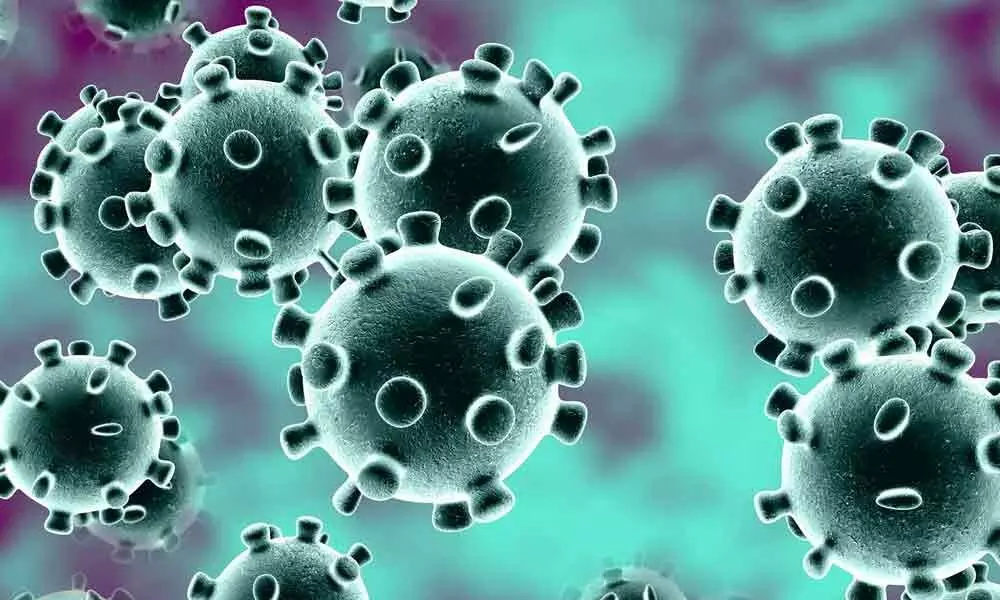Live
- Saplings distributed during Christmas fete
- Protection of ponds from encroachment demanded
- Prayagraj set to witness a massive influx of pilgrims
- CRPF doing commendable job in tackling Maoists: Shah
- UPSIDA’s secure work environment for women
- SGPC chief Giani cleans shoes at Golden Temple
- Haryana 2024: Election hustle, farmers’ struggle and sporting glory
- CM Atishi inaugurates flyover
- Kejriwal's New Delhi constituency: Atishi accuses BJP of distributing cash to voters
- LHMS, a boon for people
Just In
Cured coronavirus patients who had certain symptoms more eligible: Study


Cured coronavirus patients who had certain symptoms more eligible: Study (Representational Image)
At a time when plasma therapy is becoming a buzz word for treating critical Covid patients and appeals are being made to recovered individuals to voluntarily come forward for plasma donation, a joint study by researchers from Denmark and USA made key recommendations in this regard
Hyderabad: At a time when plasma therapy is becoming a buzz word for treating critical Covid patients and appeals are being made to recovered individuals to voluntarily come forward for plasma donation, a joint study by researchers from Denmark and USA made key recommendations in this regard.
It said that antibody titers, especially IgG levels (that are a key for donating plasma) are found to be more in persons who were diagnosed Covid positive with symptoms like fever, shortness of breath, nausea, pharyngalgia.
Persons with these symptoms compared to other Covid symptoms were found to have high IgG levels until 40 days after onset of symptoms making them more eligible for plasma donation.
Globally, the corona pandemic has had extreme consequences for the healthcare system and it called for diagnostic tools to monitor and understand the transmission, pathogenesis and epidemiology, as well as to evaluate future vaccination strategies.
The researchers developed a flexible ELISA-based platform for rapid and specific detection of SARS-CoV-2 antibodies. Their performance was evaluated in a cohort of 350 convalescent participants with previous Covid-19 infection, ranging from asymptomatic to critical cases.
The researchers mapped the antibody responses to different areas on protein N and S and showed that the IgM, IgA and IgG antibody responses against RBD are significantly correlated to the disease severity.
A total of 350 convalescence plasma samples from previously infected individuals with coronavirus (positive samples) and 580 plasma samples from healthy individuals collected before the pandemic outbreak (negative controls) were subjected to antibody measurement.
Detection of IgM, IgA and IgG antibodies against SARS-CoV-2 protein N was evaluated by analyzing 136 positive samples and 174 negative controls and ROC (Receiver operating characteristic) curve analyses were assessed to estimate the assay performance.
The study showed that the antibody titers, especially IgG levels, are correlated with specific symptom characteristics, including fever, pharyngalgia, shortness of breath and nausea, which again shows the link between clinical manifestations and the immunological response. The IgA level, on the other hand, was negatively correlated with loss of sense of taste/smell and surprisingly showed no other correlation to the symptomatology of the upper respiratory tract in this study.
As plasma therapy is zeroing down to be one of the mainstays of Covid treatment, this study will be helpful in preparing a checklist for it, Dr Kiran Madala, HoD (Anesthesia), GMC, Nizamabad said.
Plasma therapy was used as a trial therapy during Spanish flu pandemic in 1918. Telangana has 10,000 potential donors against 50,000 recovered patients so far and efforts should be made to motivate them to come forward to donate plasma and save the lives of other patients, he said.
HRDA president Dr K Mahesh Kumar said that recovered patients need to be motivated to come forward for the good cause and at the same time government should actively involve NGOs and other groups.

© 2024 Hyderabad Media House Limited/The Hans India. All rights reserved. Powered by hocalwire.com






